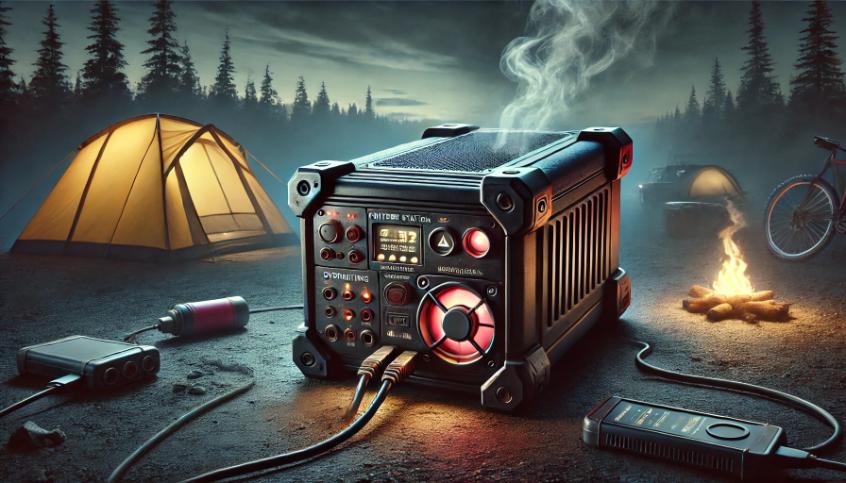
What are the Disadvantages of a Portable Power Station?
Portable power stations seem like the perfect solution for off-grid power, but what are the disadvantages of portable power stations? Limited capacity, steep prices, and long charging times can make them less practical than they first appear. Before you take the plunge, it’s worth weighing up whether one truly suits your needs. Let’s break it down.
Not sure which power station is right for you?
Take the quiz!
Portable Power Station Energy, Charging, and Cost Limitations
Battery and Capacity Constraints
Wondering what are the disadvantages of portable power stations? A key one is their inability to consistently run high-power appliances. If you dream of powering a full-size fridge, power tools, or an air conditioner, most portable models fall short. These devices are better suited to phones, laptops, and small camping gear.
Slow Recharge Times and Weather-Dependent Solar Charging
Charging a power station isn’t a quick task. While petrol generators refuel in minutes, a power station can take 8 to 12 hours plugged into a standard outlet. That’s a long wait during emergencies or trips. Additionally, solar charging is weather-dependent, with cloud cover or shade drastically reducing solar input.

Portable Power Station Cost, Maintenance, and Portability Issues
High Initial Investment and Expensive Battery Replacements
One of the biggest disadvantages of portable power stations is cost. They’re quieter and cleaner than petrol generators, but the price tag is significantly higher — especially if you're looking at high-capacity or solar-compatible models. Not all power stations allow battery swaps. If your battery degrades, you might need to replace the entire unit — an expensive downside that can catch owners off guard.
Weight, Portability, and Safety Concerns
Despite being “portable,” high-capacity models are heavy. Some weigh over 30 kg, making them cumbersome for travel or solo campers. If portability is your priority, you’ll likely sacrifice battery capacity. There are also safety risks with portable power stations. Lithium-ion batteries are efficient but sensitive, and improper use — like overcharging, physical damage, or storing in high heat — can lead to overheating or even fire.
Risk of Electrical Shock
Power stations are designed for safety, but improper grounding or damaged cables can lead to shocks. Always use quality accessories, follow instructions, and keep connections secure.

Conclusion: Should You Choose a Portable Power Station?
So, what are the disadvantages of portable power stations? They include limited energy output, long recharge times, high upfront cost, and safety considerations. But if you're aware of these trade-offs and plan accordingly, a portable power station can still be a reliable, eco-friendly option for your off-grid or emergency power needs.


